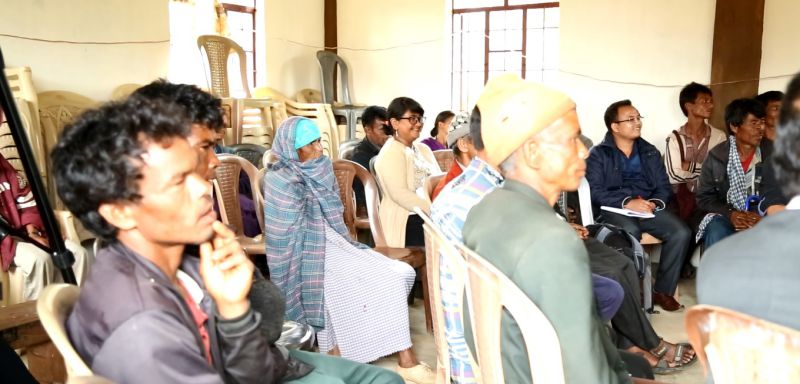
For effective lesson-learning from all the initiatives that are carried out under the IBDLP Programme and the statewide projects under it such as Megha-LAMP, it is essential to ensure knowledge transfer and communication between community partners on the one hand, and government representatives and IBDLP personnel on the other. “Lesson learning” - a key Knowledge Management activity – has been planned through documenting stories of both success and failure in the field, photographs and video clips documenting ground realities, and direct engagement with community partners to understand their needs, demands, challenges and aspirations surrounding their vision for entrepreneurship and village development.
Toward this collective knowledge creation and sharing, the Knowledge Management Unit of MBDA is conducting a series of village level immersions, dialogues and media events to facilitate engagement and collaborative action between IBDLP representatives, local government officials, civil society organisations, private sector and technical resource persons, senior media representatives, rural entrepreneurs, and community partners.
Each village or village cluster-level event is expected to generate substantial knowledge about opportunities for local development, allow the participants and community members to come up with an action plan for going forward, and generate media coverage for widespread public awareness on the vision, aspirations and stories of rural communities across Meghalaya. Each such event is also expected to be tailored to the specific socioeconomic context of the focal village or village cluster so that dialogue is meaningful and can result in some concrete action.
The community dialogue at Moosakhia, held on the 14th May, 2016, centred around developing the twin villages of Moosakhia and Samanong into an eco-tourism hotspot by leveraging on their various eco-tourism resources available in the area, and their recent thrust onto the global eco-tourism map when they were selected as one of the host villages for the International Terra Madre. This includes discussions with technical resource persons and sector experts on various opportunities present in the two villages and key challenges that need to be addressed for developing eco-tourism in the region. At the end of the dialogue, a series of action points were framed, with participants including resource persons and officials committing to implement each of them. Participants included the Headmen, village Dorbar Secretaries, village elders, women, youth and other community members of Moosakhia and Samanong village. Resource persons included experts from organizations including Stayzilla, Indian Grameen Services, Girls on the Go Club, NESFAS and SURE.
At the end of the day, the community dialogue exercise had resulted in a set of action points that were committed by the community members, resource persons, or government officials, that would together push the villages on the track towards realising their vision for becoming an eco-tourism hub.